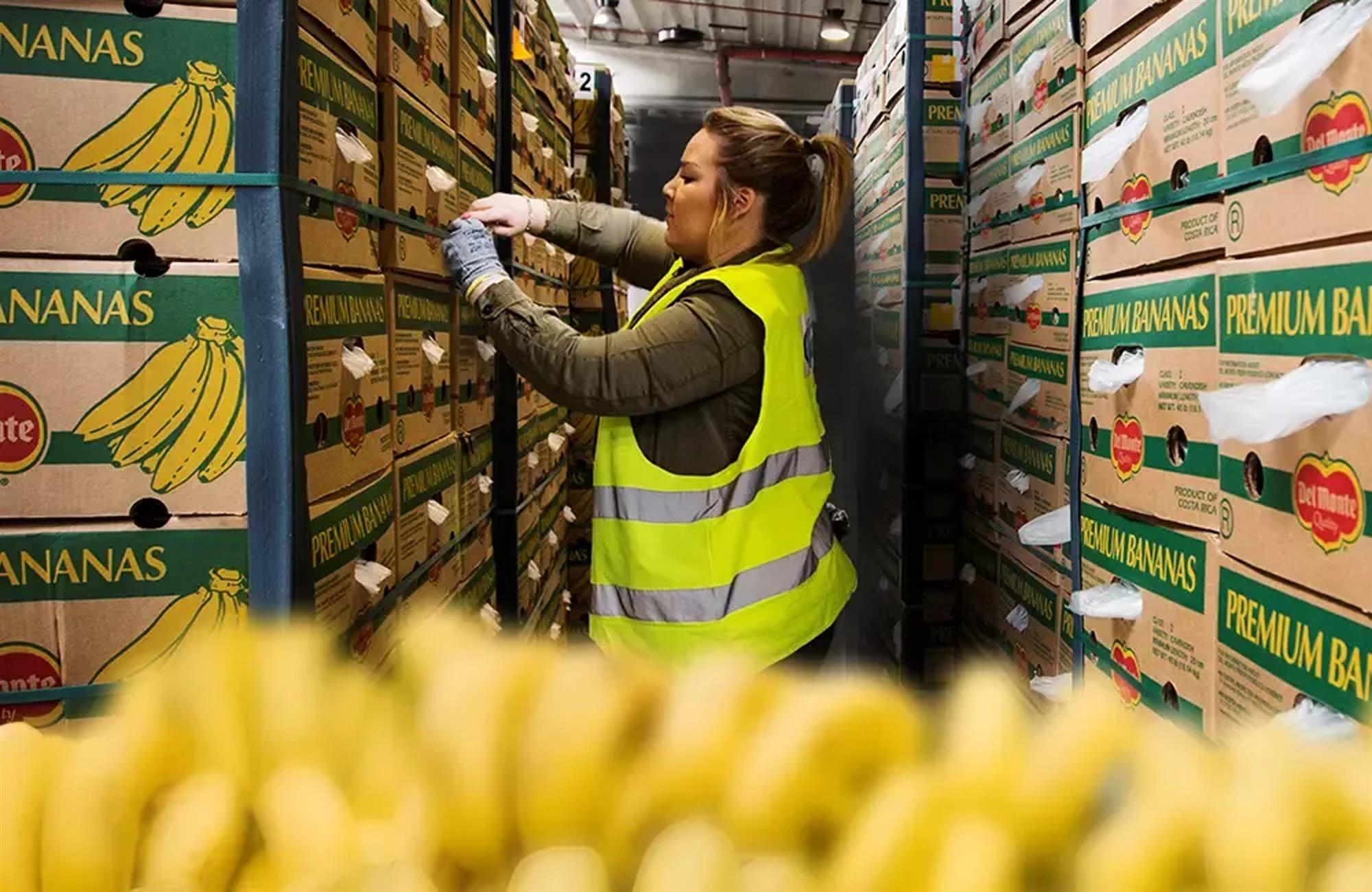The Port of Antwerp-Bruges saw a surge in reefer containers in the first six months of the year despite the continuing decline in general ocean freight volumes.
The total throughput of the Port of Antwerp-Bruges reached 139 million tonnes in the first six months of the year, recording a 5.5% decline compared to the same period last year, which the port attributed to the global economic situation.
"In contrast to the overall decline in container throughput, the number of reefer containers grew by 10.6% compared to the same period last year," the port said in the announcement, noting that an important part of the goods in these reefer containers is fruit: bananas, kiwis, pineapples, melons, citrus fruits, lychees.

[Source: Port of Antwerp-Bruges]
"Handling these perishables requires the necessary expertise and specialisation, which specialised terminals, cold stores and logistics service providers take care of," it added. "They make the Port of Antwerp-Bruges the most important fruit port in Europe."
Port "holding up well"
The port noted that while the global economic situation is "causing a drop in demand for container transport, other cargo flows show a mixed picture."
"In the current unstable economic conditions, the port is holding up well and is also gaining market share in container handling compared to the other ports in the Hamburg – Le Havre range," the Port of Antwerp-Bruges said.
It added that operational challenges and congestion at the container terminals were resolved after two difficult years, with deviated cargo returning.
The port said this results in an improvement in the second quarter (-4.6% in TEU) compared to the results after the first quarter of this year (-5.8% in TEU).
"However, the uncertain economic situation, decreasing industrial production and low consumer confidence are leading to a global slowdown in demand for container transport of as much as 9% in the first quarter of this year," the port said, noting that this results in a decrease in container handling at Port of Antwerp-Bruges of 5.9% in tons and 5.2% in TEUs, compared to the first six months of 2022.
Nonetheless, compared to the other ports in the Hamburg – Le Havre range, Port of Antwerp-Bruges' market share increased by 1% point to 30.6% in the first three months of 2023.
"Despite the weak economic climate, conventional breakbulk is holding up quite well. Throughput volumes are in line with the pre-Covid-19 period but down 17.2% compared to the same period in 2022, which showed exceptionally high throughput rates due to a strong post-Covid-19 recovery," the announcement said.
The port noted that the slowing economy is accompanied by a decline in demand for steel — the most important cargo group within this segment. Steel throughput, both import and export, decreased in total by 18%.
The dry bulk segment is down by 12.9%, and the liquid bulk segment saw a decline of 3.2%. Meanwhile, roll-on/roll-off (RoRo) traffic is continuing to see strong performance (+0.1%).
"In the first six months of 2023, 1.8 million new cars were shipped in and out — up a whopping 15% from 2022," Port of Antwerp-Bruges said.
It added that the throughput of transport equipment grew by 3.6%, while unaccompanied freight (excluding containers) fell by 2.1%.
Prepared for the future
In the last quarter, the port said it saw three record-breaking calls by the world's largest container ships, including the MSC Loreto (24,346 TEUs).
To continue to accommodate these ships, the port said it is making further investments in the economies of scale needed to remain at the top level of world ports.
In addition, investments and new projects in energy transition and digitalisation will ensure that the port can achieve its ambition of sustainable growth.
"As with other world ports, the economic situation is still posing major challenges, and this is reflected in the figures," said Jacques Vandermeiren, CEO of Port of Antwerp-Bruges.
"But in these volatile conditions, the port is holding up relatively well. The fact that, in addition, our market share is increasing is a confirmation of our resilience and strength as a merged port."
"What the second half of the year will bring depends on many uncertain factors, including energy prices, which have a major impact on the chemical sector," the port chief said. "It is at least hopeful that scheduled services that were discontinued because of Covid-19 are now being restarted, and shipping companies are choosing our port as their first port of call."